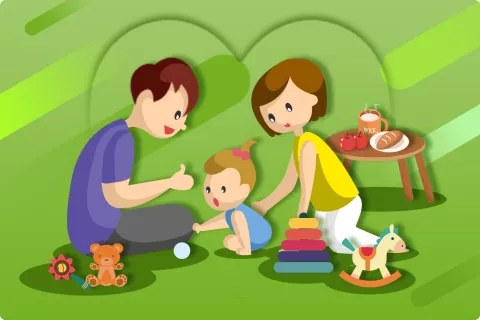4 things you can do to support your child’s healthy brain development
There is dramatic growth and brain development during the early years of your child’s life.

- Available in:
- 中文
- English
The nurturant qualities of the environments where children grow up, live and learn – parents, caregivers, family and community – will have the most significant impact on their development.
To make the most of these early years, loving and nurturing relationships with caregivers are important while everyday routines and experiences provide opportunities to nurture and support brain development.
Here are four things you can do to support a child’s healthy brain development:
Focus on good nutrition and nurturing even before birth
Nutritious meals, exercise and visits to the doctor support the healthy growth of the baby before birth. Avoid things that can harm the baby before they are born such as stress, exposure to chemicals, drugs, smoking and drinking alcohol. Talk and sing to baby before birth to help develop a strong and nurturing bond.
Watch and listen to children and follow their lead
Whether babies or young children are smiling or restless, ask yourself, ‘what are they telling me? Are they happy and interested? Are they tired, hungry or uncomfortable? Be aware and sensitive to how children may be feeling or what they need so you respond appropriately and build trust.
Make the most of everyday experiences
Feeding, dressing or going for a walk are wonderful opportunities for interactions that nurture and stimulate the brain. Take advantage of everyday activities to talk with children. Play simple games such as peek-a-boo or catch to build a positive relationship. Reading a book together supports language learning and creates quiet nurturing time.
Provide opportunities for children to explore the world through their senses
Children are learning when they manipulate everyday materials. An old pot and wooden spoon allow children to explore sound. Flowers, leaves, sand and stones allow children to touch a variety of textures and see different colours, shapes and sizes. Talk about what children see and ask them to express their ideas to stimulate the senses and support early brain development.





